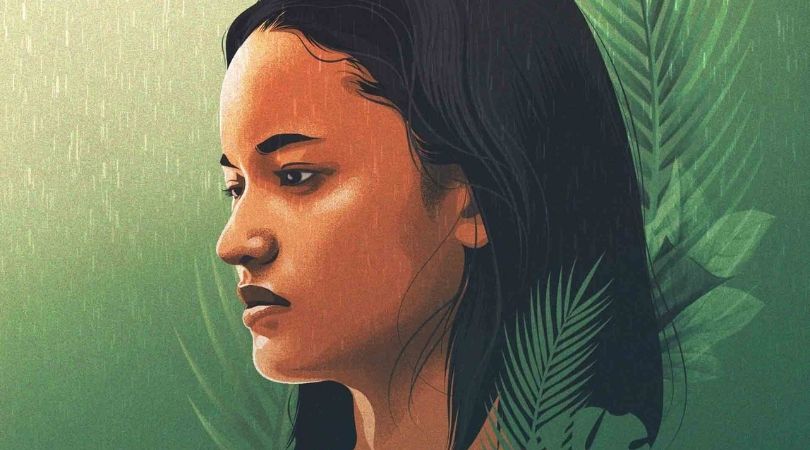
Yuni is an Indonesian-language drama co-written and directed by Kamila Andini and produced by FourColor Films. The film centers on the titular character Yuni (Arawinda Kirana) who like most teenage girls is dealing with woes such as her final year in high school and a crush on her English teacher Mr. Damar (Dimas Aditya). However, she lives in a Muslim society and is being scouted for arranged marriages with a variety of suitors, as her grandmother (Nazla Thoyib) believes it will be a blessing for their family. Yuni slowly starts figuring out who she wants to be, helped out by her friends as well as fellow student Yoga (Kevin Ardillova), with who she slowly develops a relationship with.
The coming of age film is one of my favorite genres of film. From Booksmart to Inbetween Girl, there has been a steady rise of films that explore the teenage girl’s perspective and deliver emotion as well as some well-placed laughs. Yuni falls into that category, as we see scenes of girls hanging out and cracking jokes about boys while on their cell phones. The Indonesian setting and traditions as well as many of the characters’ Muslim faith and practice set the film apart in the genre.
Andini and co-writer Prima Rusdi also deliver an honest portrayal of adolescence and how there sometimes aren’t easy solutions to every problem. Yuni is nowhere near ready to be married; this only intensifies when she learns that some of her friends have been forced to get married as they’ve been caught with boys in their room or had miscarriages as early as 13. Watching these conversations hit me hard in the gut, as this film shows that we all need time to grow up and setting certain milestones can have a damaging effect on one’s mental state.
The film also features heavy use of the color purple, as well as poetry to tackle its themes. Yuni loves the color and wears multiple articles of purple clothing, and even starts to dye purple streaks in her hair. Purple is a color associated with creativity and independence, traits that are present within the film. Andini and cinematographer Gay Hian Teoh shoot the film in hues that often make Yuni stand out among the scenery. The poem “Rain in June” by Sapardi Djoko Damono also plays a role in the plot, as its discussion of love is counter to the arranged marriages Yuni’s family is trying to put her through as well as her blossoming relationship with Yoga. It also serves as the final assignment in her literature class and her struggle to unlock the poem’s meaning runs parallel to her other struggles.
A great concept and good direction can only take you so far when making a movie; great characters are the driving force between all films, no matter the genre. Kirana is a standout here; she runs through a gamut of emotions including desperation and even rage. Her chemistry with Ardillova is also a major draw; the film presents Yuni and Yoga as the awkward teenagers they are, which lends unexpected sweetness to their interactions with each other. This makes the final scene of the film hit that much harder, as it feels both inevitable yet utterly heartbreaking.
Yuni is a deeply honest and unflinching approach to the coming-of-age genre, thanks to the thoughtful direction and writing of Kamila Andini and Arawinda Kirana’s performance. I hope that this film gains distribution as it is an emotional and truly beautiful viewing experience and a film worth watching.
Yuni had its world premiere at the Toronto International Film Festival.
Yuni
-
Rating - 10/1010/10
TL;DR
Yuni is a deeply honest and unflinching approach to the coming-of-age genre, thanks to the thoughtful direction and writing of Kamila Andini and Arawinda Kirana’s performance. I hope that this film gains distribution as it is an emotional and truly beautiful viewing experience and a film worth watching.






